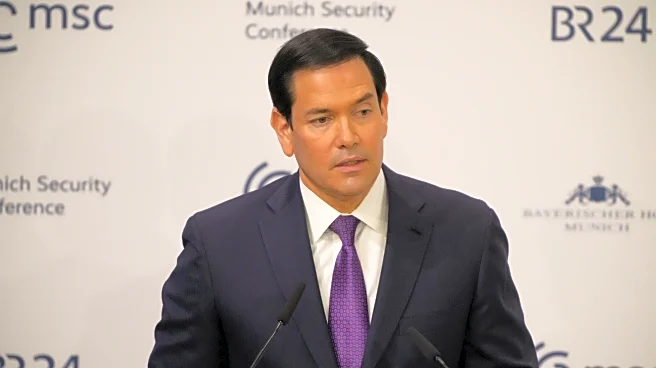Rapid Read • 7 min read
Gina Rinehart, Australia's wealthiest individual and a prominent mining tycoon, has publicly criticized the country's pursuit of net zero emissions. Rinehart argues that the financial burden of climate action will negatively impact various sectors, including healthcare, logistics, and defense. Her stance aligns with a growing global resistance to aggressive climate policies, influenced by President Trump's actions in the U.S. Rinehart's op-ed, published in several Australian newspapers, questions the use of shareholders' and taxpayers' money for net zero initiatives, suggesting that the costs are unsustainable for Australia. She highlights potential adverse effects on industries and public services, advocating for a reevaluation of the country's climate commitments.
AD
Rinehart's opposition to net zero policies underscores a significant debate over the economic implications of climate action. As Australia targets net zero by 2050, her views reflect concerns about the feasibility and economic impact of such goals. The mining sector, a major contributor to Australia's economy, faces challenges in adapting to emissions-free technologies. Rinehart's criticism may influence public opinion and policy discussions, especially as Australia prepares to co-host the United Nations climate summit. Her stance also resonates with similar sentiments expressed by political leaders in the UK and other countries, questioning the practicality of achieving net zero without compromising economic stability.
Rinehart's position highlights the broader ethical and economic debate surrounding climate policies. The push for net zero involves balancing environmental goals with economic realities, raising questions about the role of government and private sectors in funding climate initiatives. Her critique may prompt further scrutiny of emissions targets and the potential need for alternative approaches to sustainable development. The discussion also touches on the cultural and political dimensions of climate action, as stakeholders navigate differing priorities and perspectives.
AD
More Stories You Might Enjoy











